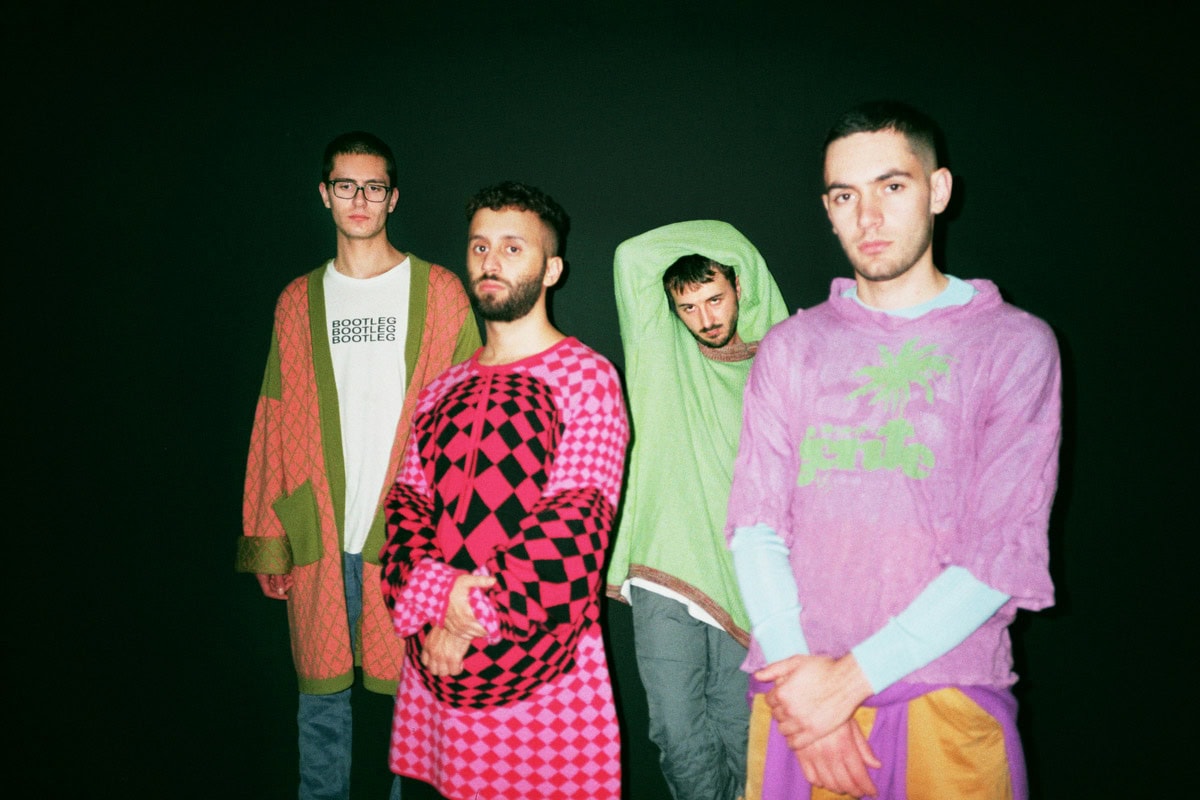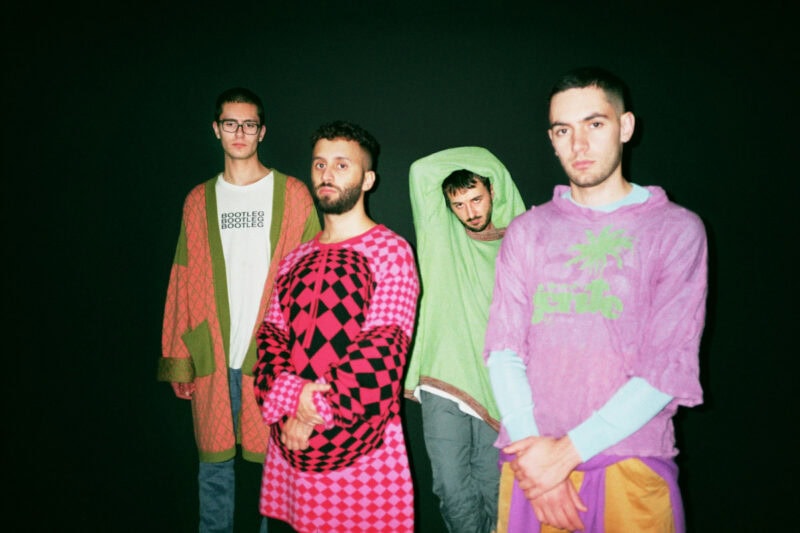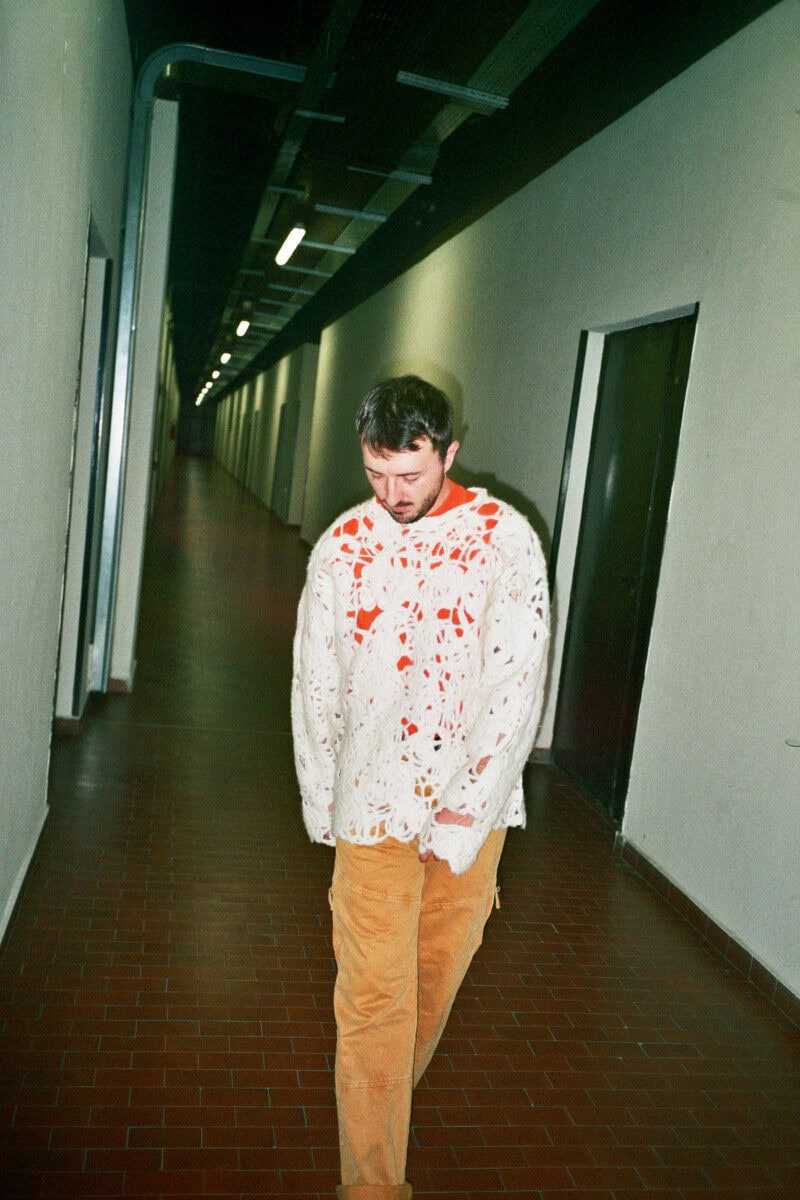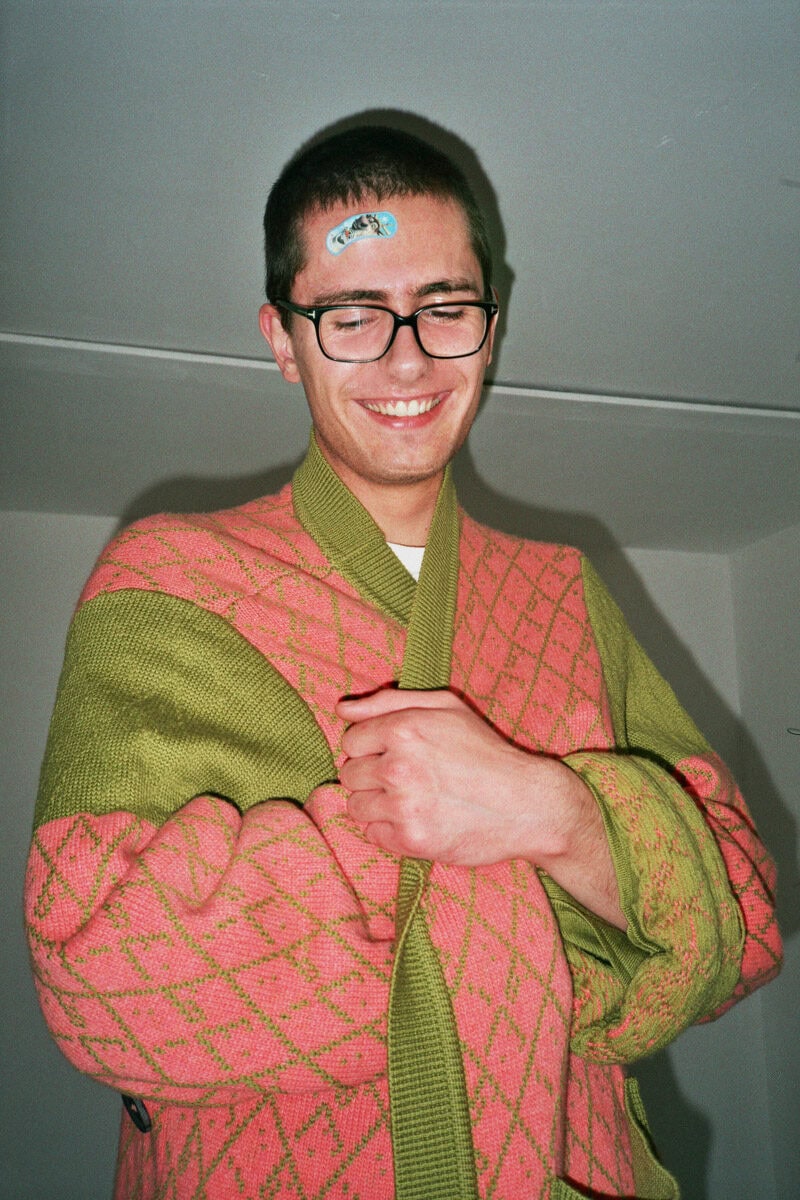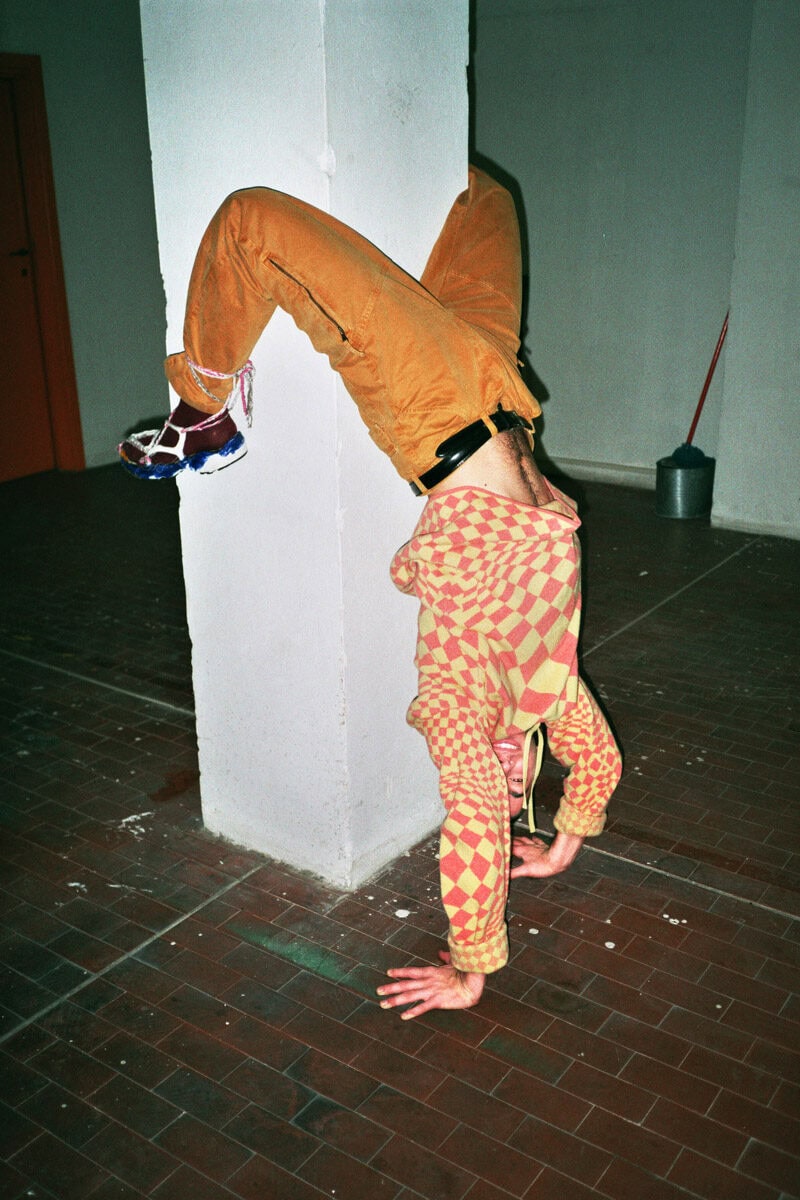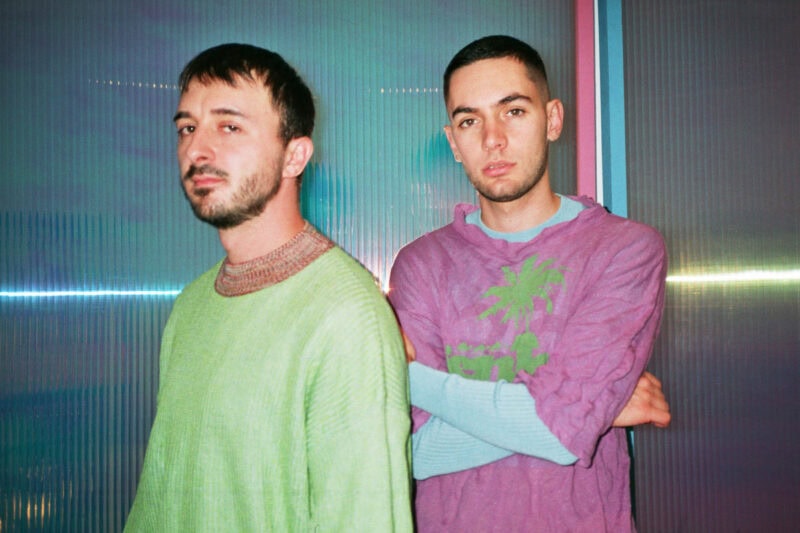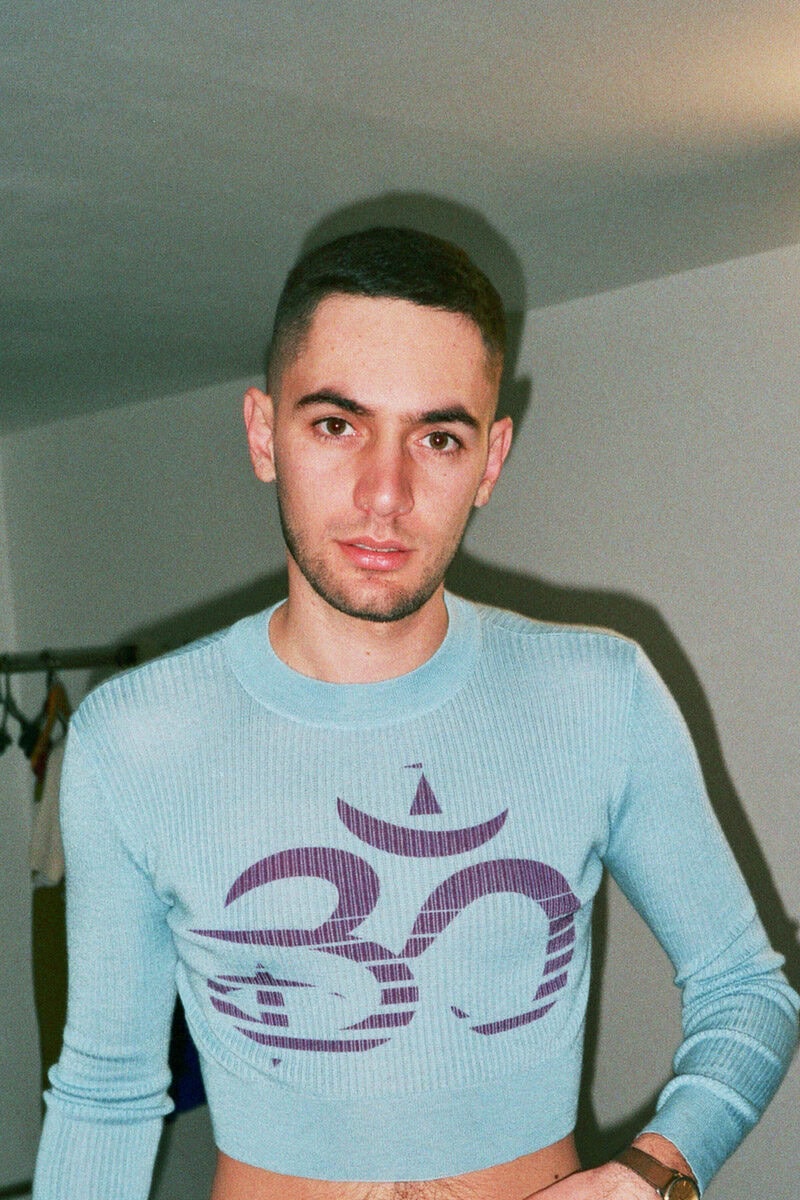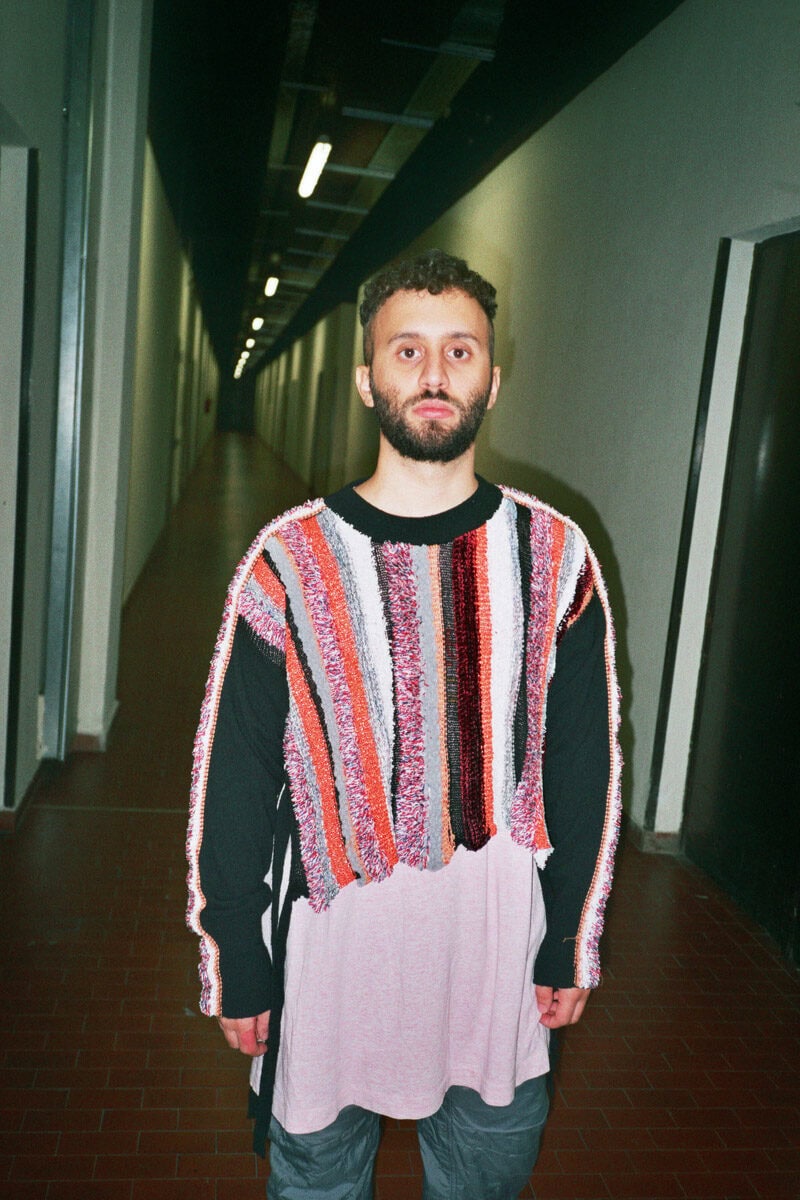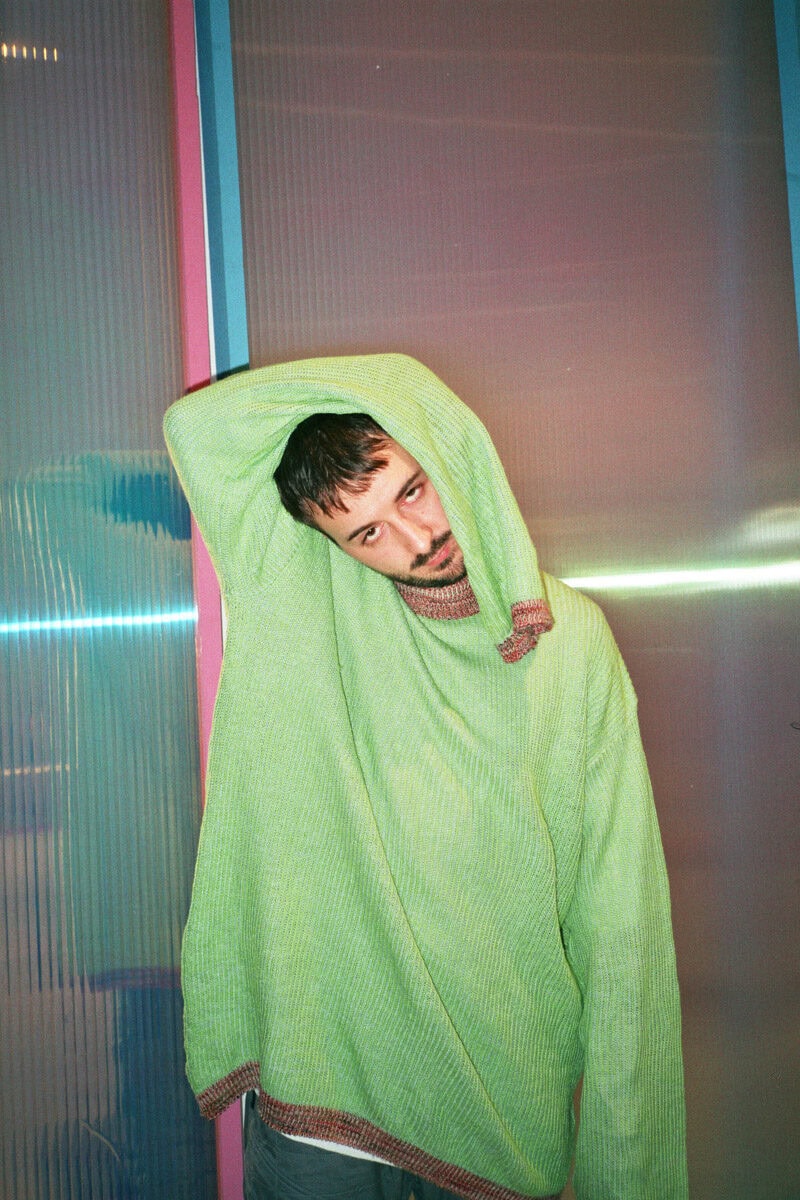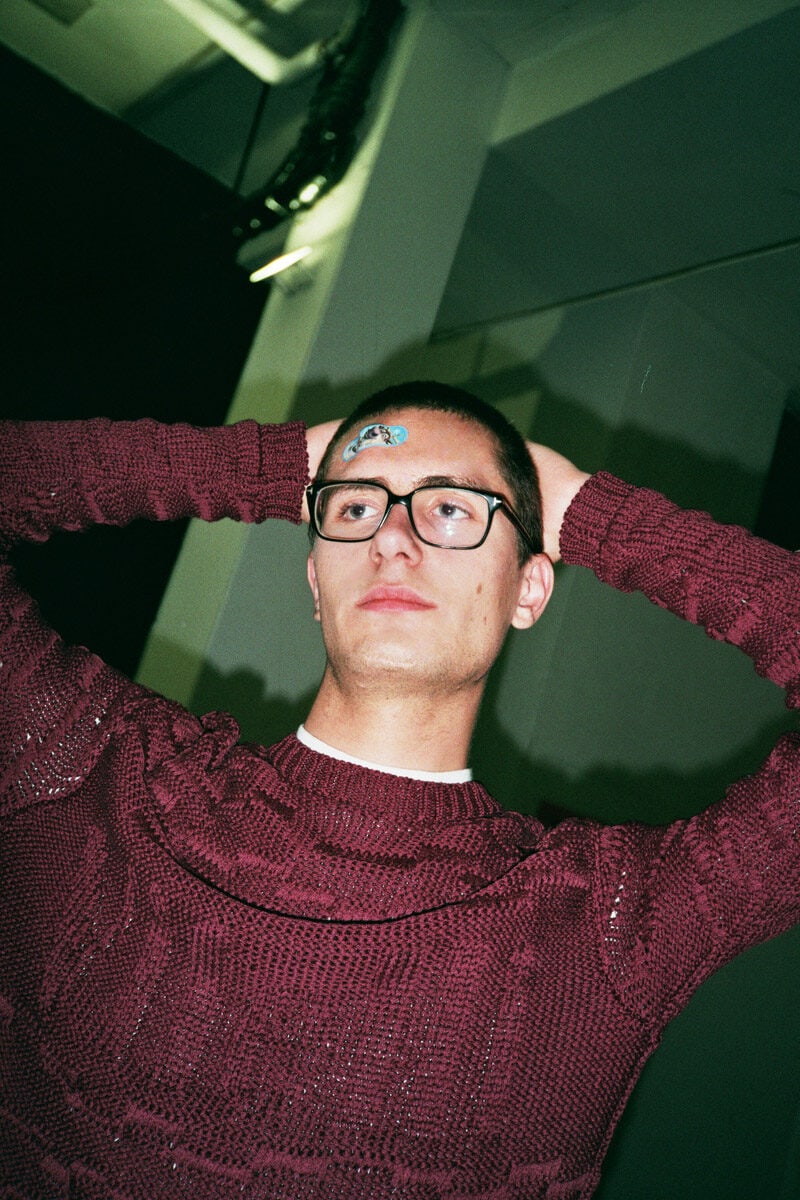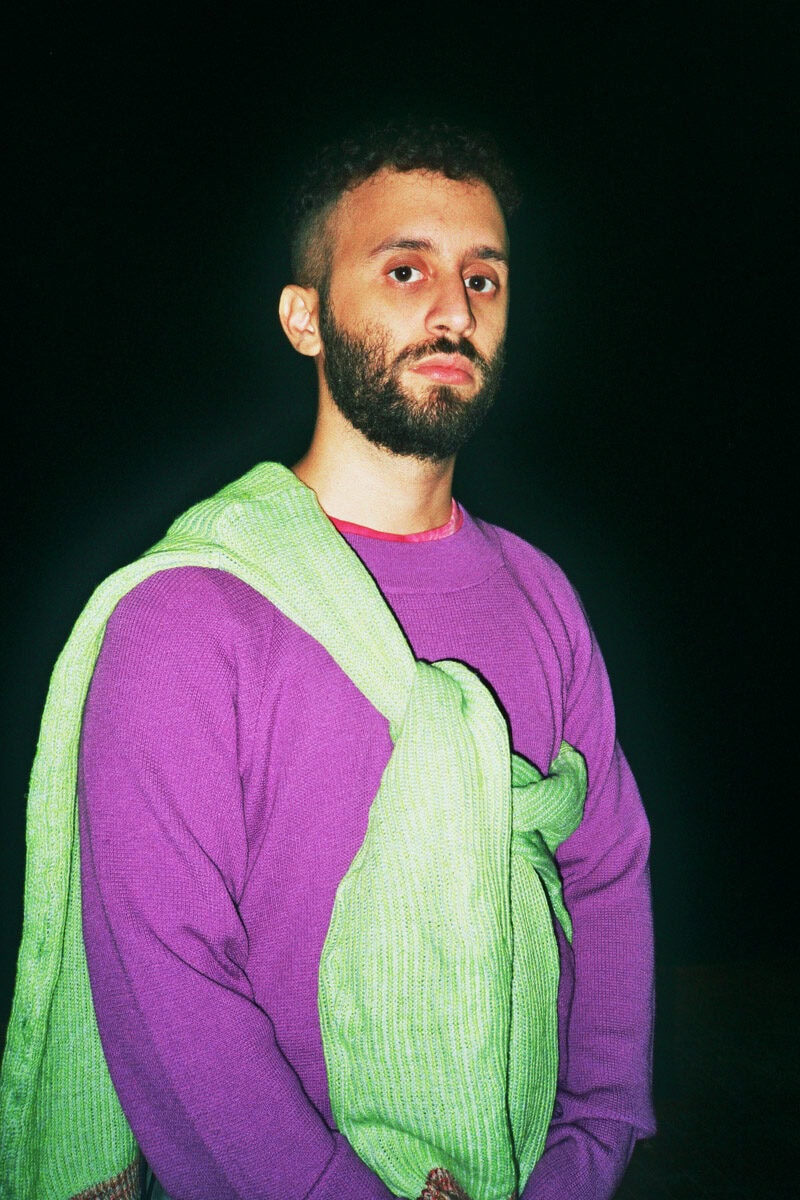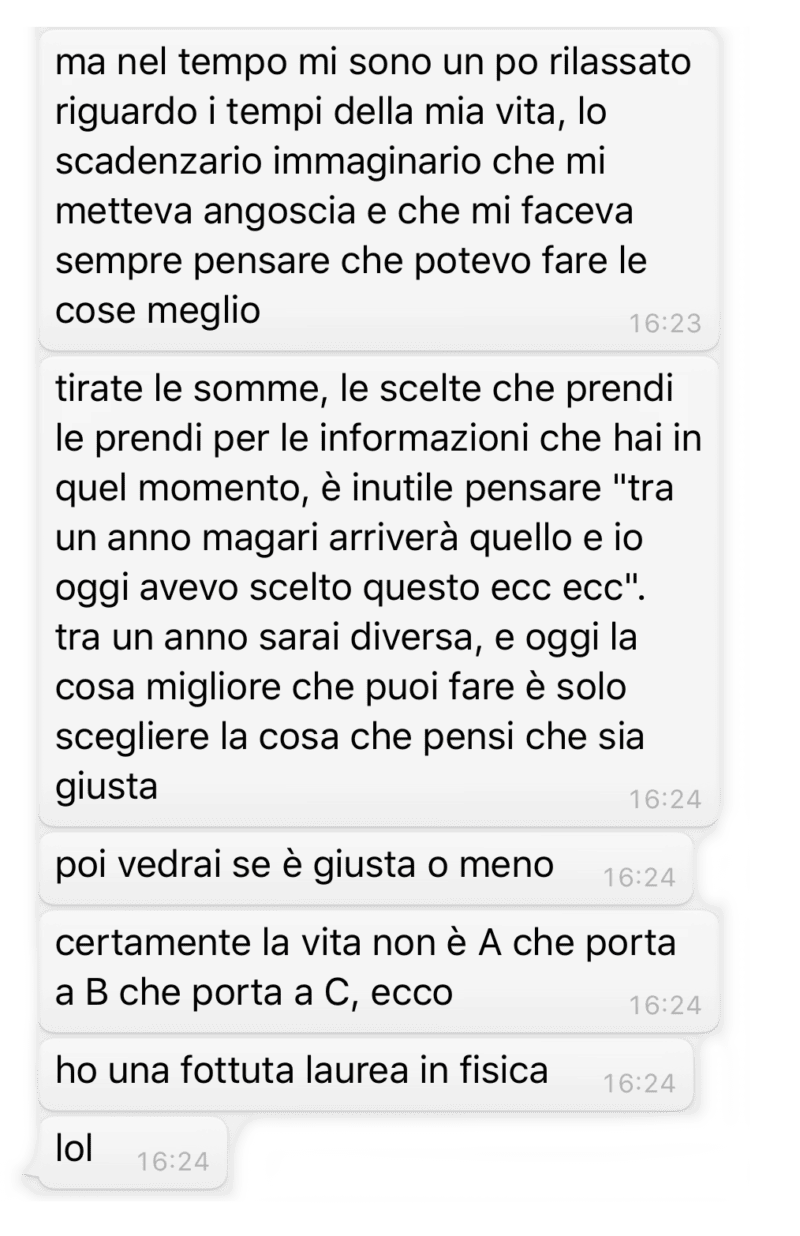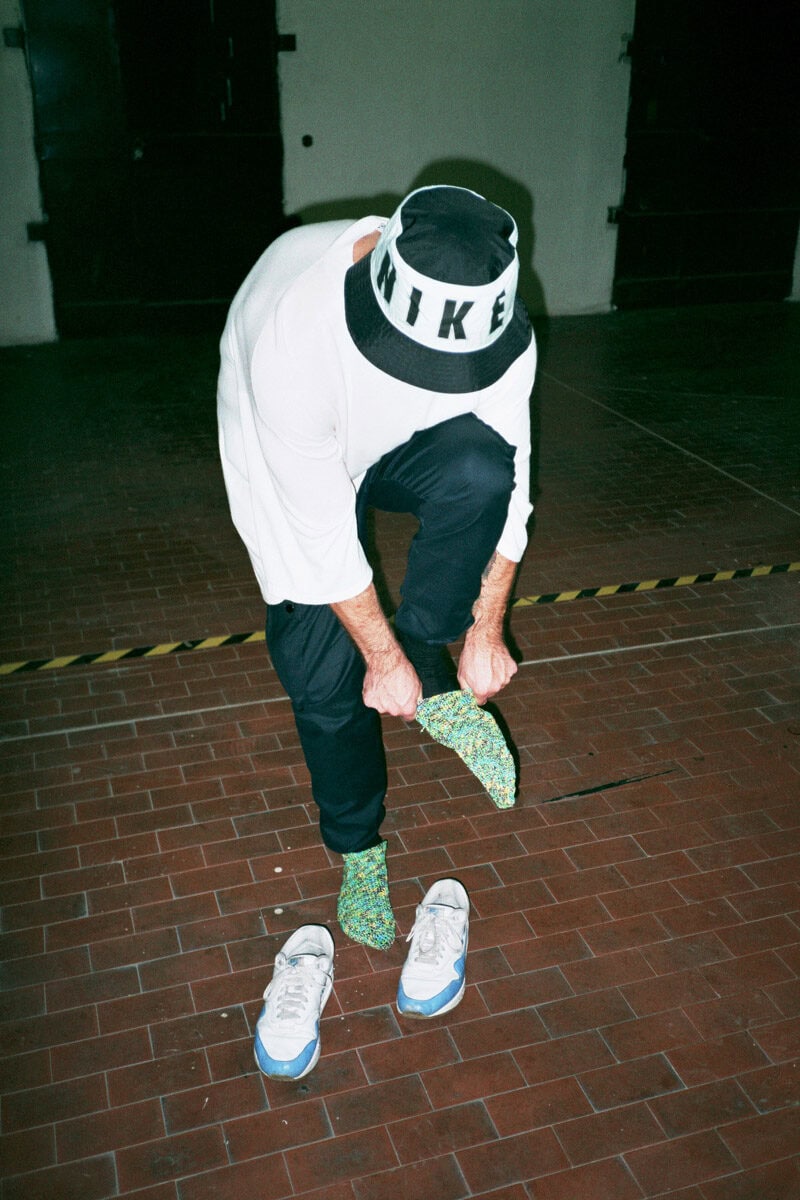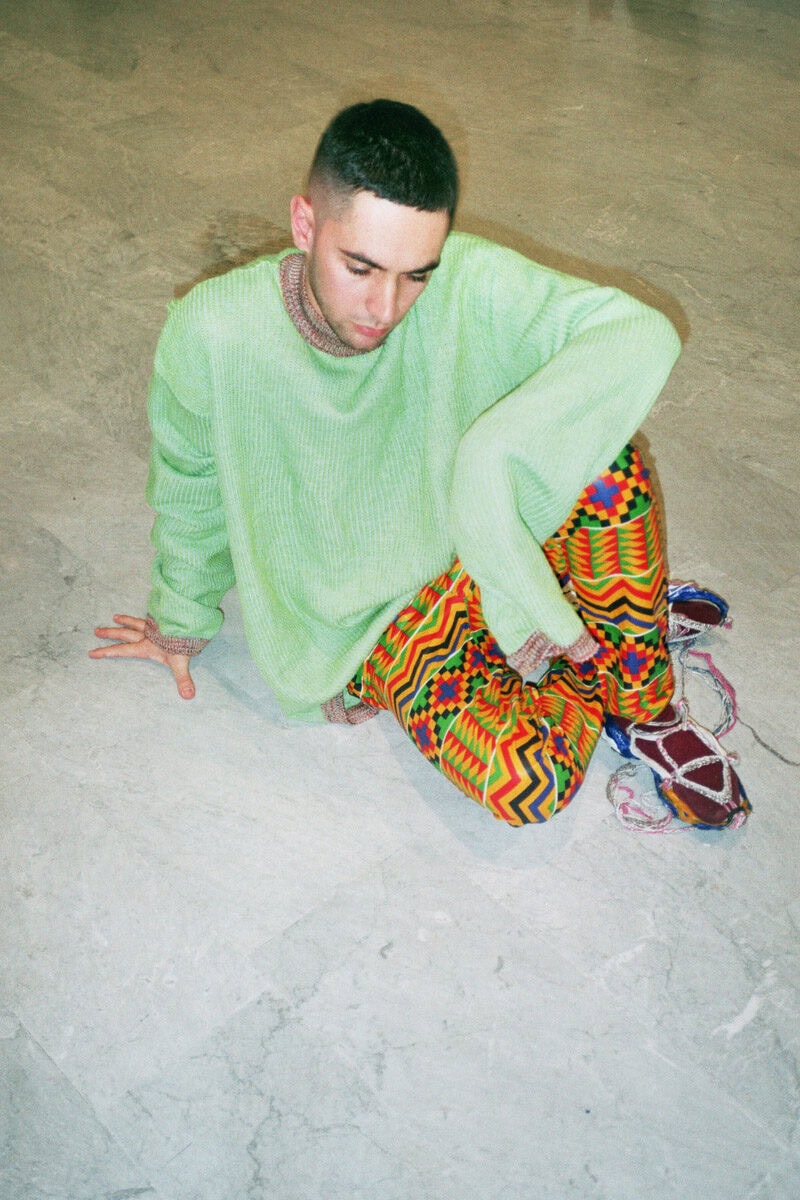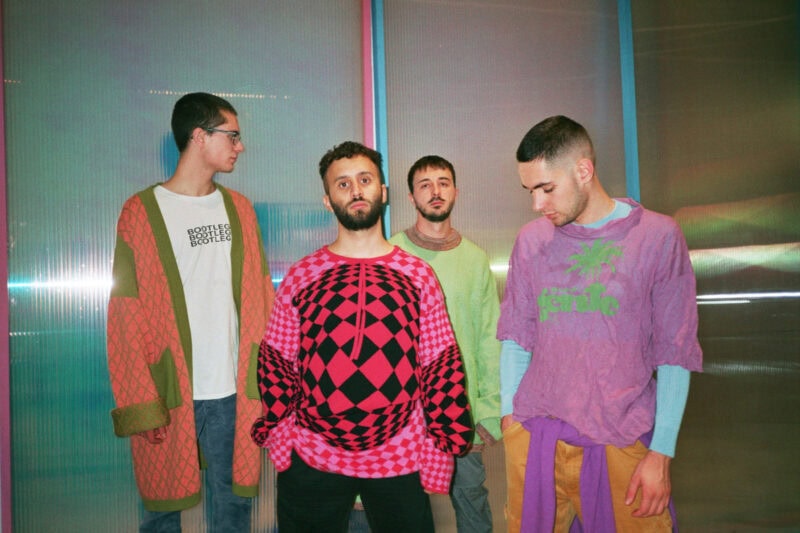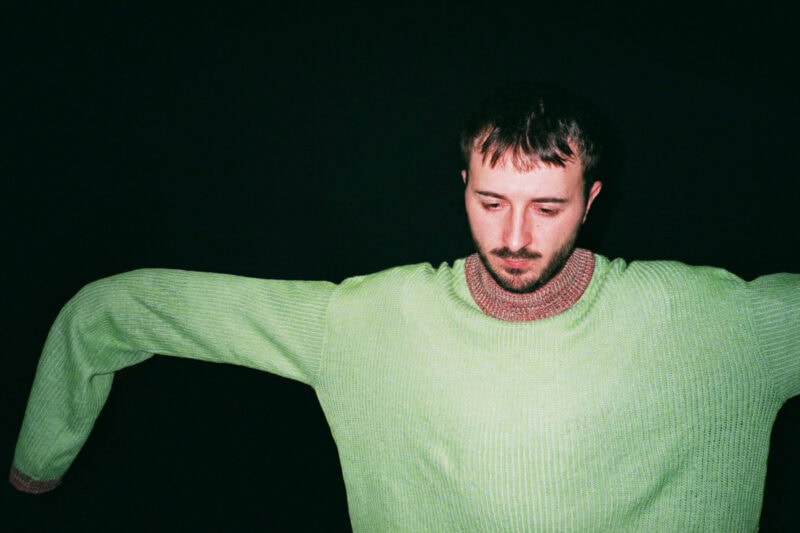72-Hour Post Fight are a rare case of promises kept. Hiding within the group are names that have already made music history, albeit behind the scenes. It’s difficult to identify the exact starting point of the project. Luca (Palazzi D’Oriente) and Carlo (Fight Pausa) have shared in the joys and sorrows of the suburbs together since forever. After putting aside their schoolboy dream of forming a punk rock band, they have worked tirelessly to combine their different worlds of electronica and emo. Holding it all together are Andrea’s drums (Mecna, Generic Animal, Leute) and Adalberto’s saxophone. Adalberto is not only Carlo’s friend from university but also the touch of jazz in the group.
The result is an uninterrupted flow of different musical languages fighting for dominance, with no clear winner in the end. While perhaps not immediate to inexperienced ears, these sounds raise a series of unanswered questions that demand a second listening at the very least. I must admit, I got a little carried away and followed them almost everywhere they went in 2019. My first 72-Hour Post Fight concert was in Piacenza, May 2019, where I was one of just a handful of people under the pouring rain. The next thing I knew, they were playing at Club to Club. It was one of those things that I had always hoped would happen for them, but often doesn’t because life is unfair.
Let’s start right there. How did it feel to finally be on the big stage? What does your live show offer that listening on Spotify just can’t replicate?
Performing at Club To Club was like coming full circle for us. We’ve been going to that festival as fans for years and when we started playing, we actually set ourselves the goal of playing there within a year. Then suddenly, there we were, sharing the stage with Battles. We bought the Mirrored album when we were at secondary school and then suddenly in 2019, we were handing Battles our first vinyl.
Live concerts are a central element of 72. There is a strong improv element, which makes all our concerts different both from each other and from the album. We bring into play a series of different factors and self-imposed “limitations” (we only use a few instruments, which in some cases we don’t even play very well) when we perform our songs live, we mess around and react and adapt to the situation and what’s happening around us.
It is always infuriating to realise that you have taken something beautiful for granted when suddenly that beauty is no more. That’s what happened with concerts – and more generally with a huge part of artistic and musical production – during lockdown. There was suddenly a long silence, which replaced a noise that we had become accustomed to. How did you react to this rehearsal for the end of the world?
We were absolutely incredulous to begin with. We had been in Turin for a concert the weekend before lockdown. That day, just a few hours before the event, the first case was confirmed in the city and there was a strange atmosphere in the air. The concert went perfectly well, but when we woke up the next day, we realised that something deeply wrong had shifted around us. The return journey was quite alienating: we found ourselves crossing a semi-deserted Milan with the radio on and a bad feeling about everything. After that, we didn’t see each other again until a few days ago. It was hard to see everything at a standstill and not being able to play. But it was a challenge that went far beyond music: it made us reconsider how precarious this man-made world is and what we have to do if we want to remain immersed in it.
Sooner or later, that silence had to be interrupted. People were beginning to forget what stages looked like and how it felt to be in a jampacked crowd gazing up at one. Today you’re going to remind us of that feeling but without the stiff neck, thanks to your 360° live show at Club to Club, seen through the eyes of Tommaso Manca and Giorgio Cassano. Periodically, the video feels like it’s about to disintegrate, as often happens at the climaxes of your performances. What does it mean to you to release this video right now? How can the world of music get going again?
We always make sure to bring a couple of friends with a camera to our concerts. It’s a way for us to remember different bits that worked during the concert and bring them back to the studio as well as to record what’s happening at our concerts. Most 72 live shows don’t take place on big stages but in improvised situations and there are often funny things happening that are fun to film. In this case, however, we took that idea to the next level and Tommaso, Giorgio, and Nic turned the chaos of people at the concert into a chaos of pixels. For us, this is an important opportunity to share – as far as possible nowadays – the experience of making and listening to music together, as well as immortalising a small personal victory that life can never take away from us. We believe that the only way to kickstart the world of music once more is by not letting it die, by supporting independent artists and scenes, because, as always in a big crisis, it’s the smaller companies that pay the highest price.
You have always had a very DIY aesthetic – whether in your graphic design or choice of venues. Giulia Bersani’s photos transform you into the desecration of a rainbow. Were your outfits DIY too?
We had a lot of fun taking those photos! The clothes we are wearing are all by Vitelli, an Italian brand that we have worn at other concerts too. We met founder Mauro last September at a presentation in their space in Milan. He came to see us at one of our concerts and from there came the idea of taking pictures in their space with Giulia Bersani. This whole thing happened thanks to Clarissa, who handled the styling and has done for us ever since. She drives herself crazy trying to dress us well for shoots and concerts. These are our first trendy photos!
“Over time, I’ve relaxed a bit about the timeline of my life, the imaginary schedule that haunted me and always made me think that I could have done things better. At the end of the day, you make decisions based on the information you have to hand at that moment. There’s no point in thinking “I could choose this today but that might happen in a year” and so on. You won’t be the same in a year so the best thing you can do for yourself today is just to choose what you think is right. You’ll find out whether it was right or not later. Life is certainly not A, leading to B, followed by C. I have a fucking Physics Degree. LOL.”
[Carlo’s reply via WhatsApp to one of my periodic mental breakdowns]
Carlo has “a fucking Physics Degree”, and now he plays music. Plans change and non-linear choices are somehow part of your DNA. What do you see in your new future?
Let’s say that non-linear choices are a must in 2020. COVID-19 messed up all our plans, as well as those of most of our colleagues. During the lockdown, we worked hard on our second album, which we are very happy with. We put a lot of energy into writing the pieces and experimenting and we believe that all of last year’s concerts really consolidated the band in unexpected ways, bringing out new inspirations and reference points. There will be surprises soon.
In terms of concerts, we’ve had to completely recalibrate, obviously. We would have liked to head out across Europe on a new tour soon but unfortunately, we’ll have to wait a little longer for that dream to become reality.
This is not a question about your name, I promise. But can you tell me what happens in those 72 hours post fight?
Our music happens there, that’s what it is. Our music is exhausted.
72-Hour Post Fight: Luca Bolognesi (Palazzi D’Oriente), Carlo Luciano Porrini (Fight Pausa), Andrea Dissimile, Adalberto Valsecchi.
Photography: Giulia Bersani
Styling: Clarissa Chareun
Look: Vitelli
Video: Giorgio Cassano, Tommaso Manca, Nic Paranoia
